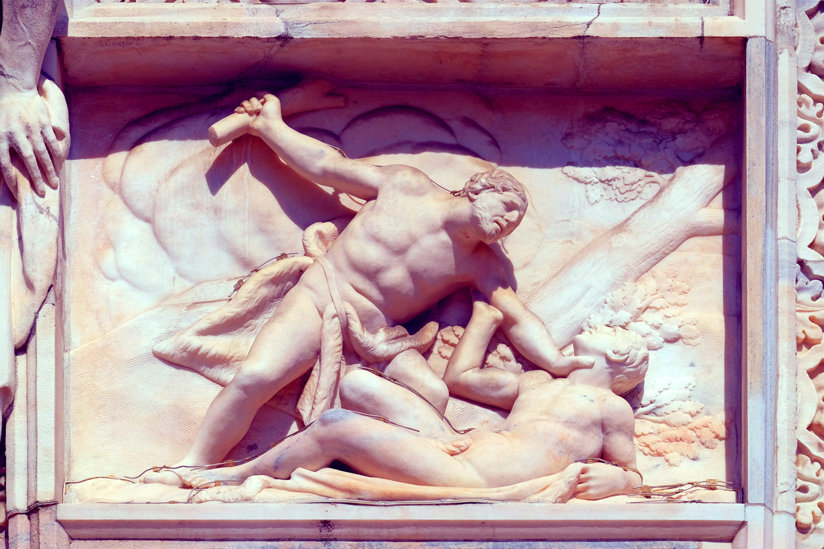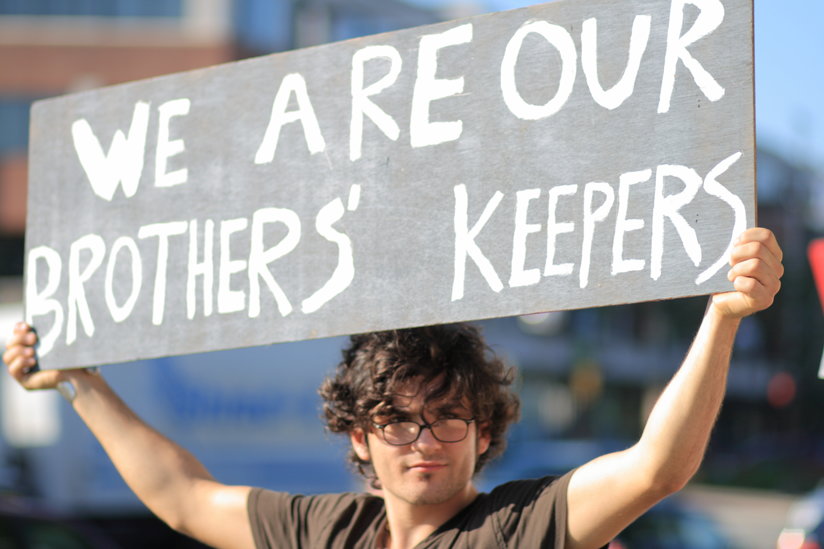
-
HOME
-
WHAT IS STANDOur Mission Our Values Our Help Contact
-
WHAT WE FIGHT FORReligious Freedom Religious Literacy Equality & Human Rights Inclusion & Respect Free Speech Responsible Journalism Corporate Accountability
-
RESOURCESExpert Studies Landmark Decisions White Papers FAQs David Miscavige Religious Freedom Resource Center Freedom of Religion & Human Rights Topic Index Priest-Penitent Privilege Islamophobia
-
HATE MONITORBiased Media Propagandists Hatemongers False Experts Hate Monitor Blog
-
NEWSROOMNews Media Watch Videos Blog
-
TAKE ACTIONCombat Hate & Discrimination Champion Freedom of Religion Demand Accountability
The Sin Of Cain: Why Hatred Is Its Own Punishment
The bigot thinks he has made up his mind. He will hate those people. He will fear that community. He will revile that group.
But in truth, he hasn’t made up his mind at all. He has hobbled himself with his hate to the point of being incapable of true free will—only paralyzed.

Cain, the Bible tells us, hated his brother for being favored by God. Hated him, feared him, and slew him—and thus brought into the world all the blood relations of hate: fear, shame, dismay, falsehood.
God punished Cain by condemning him to wander the earth, an outcast despised by all.
Moreover, it is said that, for his transgression, God cursed Cain’s descendants for seven generations, causing them all to be born with two heads—each disagreeing with the other, each fighting the other, each unable to make a decision due to suspicion and hate.
The punishment for Cain’s hate was hate.
That is how war, the child of hate, was brought into the world.
Cain, like the bigot of today, became a slave devoid of decision or impulse—a marionette, his strings pulled by Hate, his master.
But unlike the bigot, you and I always have a choice.
When a stranger comes into your life, you can welcome or reject him.
When friendship beckons, you can accept it or refuse.
When a chance to learn or grow presents itself, you can embrace or waste it.

But the punishment of Cain and of his descendants to this day is hate—self-consuming hate, like a fire that turns inward, destroying nothing but the one who lit the flame.
Hatred begets violence begets death. So it could have been predicted that the children’s children of Cain would teach themselves to forge brass and iron, to make armor and spears, the better to kill one another with.
That is how war, the child of hate, was brought into the world by the spawn of Cain.
Because the sin of hate is its own punishment.
But it affects us all.









